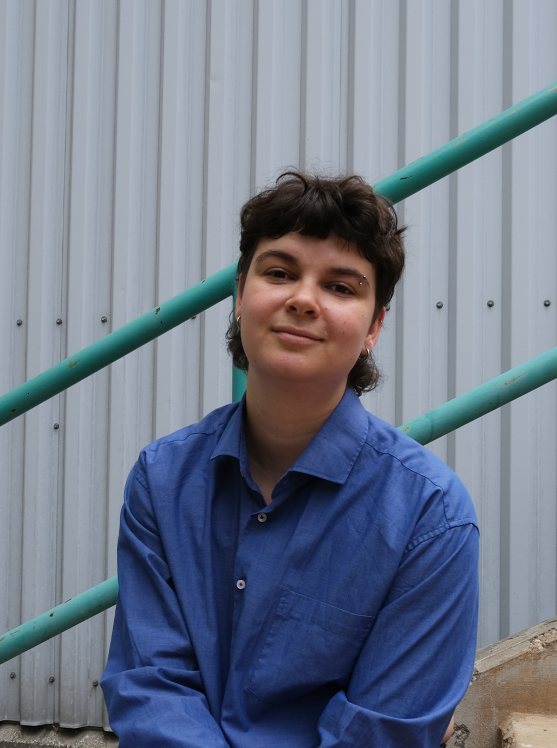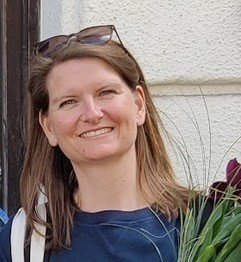Congratulations: Mayra Jenzer Azevedo, Catherine Bouvier and Rehema Chachage awarded for their theses
The Award for Scientific Works 2024/25 is awarded to Mayra Jenzer Azevedo for their master thesis (MA in Critical Studies). The Honorary Award goes to Catherine Bouvier (Conservation-Restauration) and Rehema Seithy Chachage (PhD in Practice) for their dissertations. Congratulations!
Methods of Eternity – Gothic, Camp, And Vampiric Trans*gressions (Fragments From A Vampire’s Diary)

This thesis develops the method of bastardized vampirism as a way to articulate trans* ontologies through a specific understanding of the vampiric. This method emerges from an affinity between the sensibility of the Gothic tradition – out of which the modern vampire figure arose – and camp aesthetics, through which vampiric monstrosity is redefined. Sandy Stone’s concept of “gender as genre” is taken literally here: the vampire genre serves as a medium for crafting counter-discourses against trans*-antagonistic, normative, and binary narratives, particularly within medical and bureaucratic contexts.
Within this framework, vampiric monstrosity – originally defined by a reactionary Gothic materialism – is expanded by Juliane Rebentisch’s notion of camp materialism, understood as a tender relation to death and decay, to failure and monstrosity. This is not intended to affirm a necropolitically determined queerness, but rather to recognize the subversive potential of bastardized vampirism to destabilize biopolitically organized, fixed identities.
Vampiric trans-temporality as a rupture with cis-heterosexual chrononormativity; the fugitive, liminal existence of the vampire in nocturnal, misty in-between spaces; the ever-present threat of infectious transformation – all of these qualities coalesce in the method of bastardized vampirism, into a trans*subversive strategy. Beyond the bounds of state recognition, this strategy articulates itself through trans*gressive desire, monstrous consumption, and joyful transformation in the twilight.
Jury statement:
Die Masterarbeit von Mayra Jenzer Azevedo überzeugte die Jury durch ihre herausragende wissenschaftliche Qualität und originäre Methode. Die Arbeit analysiert die Figur des Vampirs aus pluralen Blickwinkeln, insbesondere in Bezug auf Geschlecht und Sexualität sowie als erkenntnistheoretische Trope, in der sich die Angst vor dem Uneindeutigen, vor Grenzüberschreitungen und der Auflösung von Binaritäten ausdrückt. Dabei wird der Frage nachgegangen, was wir hinsichtlich des trans* Körpers und der „Monstrosität, die ihm zugeschrieben wird“, von diesem Wesen lernen können. Die Arbeit ist an der Schnittstelle von Kulturwissenschaft, künstlerischer Forschung, Queer Theory und Trans Studies angesiedelt. Jenzer Azevedo denkt den Vampir über Kunstgeschichte, Filmwissenschaft, Literatur und Popkultur hinaus und entwickelt eine widerständige Methodologie, den „bastardized vampirism“. Diese transversale Methodologie stellt sich gegen disziplinäre Grenzziehungen und die epistemische Gewalt binärer Kategorisierung. Die Masterarbeit leistet somit einen wichtigen und überzeugenden Beitrag zu aktuellen queeren, trans*, transdisziplinären und dekolonialen Diskursen. Jenzer Azevedo verbindet wissenschaftliches Schreiben mit fiktionalisierten Erfahrungsberichten, sogenannten „Tagebucheinträgen“. Dieser hybride Schreibstil, der gleichzeitig innovativ, klar gegliedert und sehr gut nachvollziehbar ist, beeindruckte die Jury.
Catherine Bouvier
Geschichte(n) der Papierrestaurierung in Österreich - von ihren Anfängen bis zur Jahrtausendwende

This thesis describes the professionalisation process of paper conservation in Austria from various perspectives: On the one hand, the development of workshops at archives, libraries, and museums is reconstructed, covering the period from the first indication of conservation/restoration activities to the present day. The focus covers the period between the founding of the workshops and the turn of the millennium. In addition, I analyse how and where transfer of knowledge took place: The emergence of various training and further education opportunities in Austria and abroad as well as professional associations play an important role here. The resulting professionalisation led to the gradual recognition of the field, as evidenced by, e.g., the gradual upgrading of civil service positions. The third part of the thesis is dedicated to the influence that various events had on developments in paper conservation in Austria. The Florence Flood of 1966 and the paper decay that threatened the wood-pulp -containing newspaper collection of the ÖNB are discussed as concrete examples. To generate new knowledge, guided expert interviews were conducted. The information gained from these interviews was cross-referenced and verified using other sources such as literature and archives. This dissertation represents the first overview of the historical development of paper conservation in Austria. The dissertation’s purpose is two-fold: (i) enable further research, and (ii) provide a framework to aid the field’s ongoing localization and professionalization efforts.
Jury statement:
Die Dissertation von Catherine Bouvier widmet sich der Geschichte der Papierrestaurierung und der Professionalisierung des Faches in Österreich. Sie erweitert in ihrer hervorragenden Arbeit historische Grundlagenforschung durch sozialwissenschaftliche Methoden; Archivrecherche mit biographisch orientierten Expert_inneninterviews. Über die detaillierte Analyse der praktischen Fallbeispiele und die Befragung der zahlreichen Protagonist_innen mit den unterschiedlichen Expertisen vermag Catherine Bouvier ein vielschichtiges Narrativ von geschriebenem und ungeschriebenem Wissen für den Bereich der Papierrestaurierung und Restauriergeschichte aufzuzeichnen. Die Dissertation leistet eine umfassende Darstellung der Fachgenese als auch der Institutionsgeschichte und eröffnet neue Perspektiven für die Forschung in der Konservierung-Restaurierung. Bouvier überzeugte die Jury sowohl durch ihren interdisziplinären methodischen Ansatz, der Zeitzeug_innenforschung wie auch die Reflexion der eigenen Position einbezieht wie auch durch den Reichtum an Detail, den die Arbeit aufweist.
Rehema Seithy Chachage
Yee Kididi Kiziha. A transgenerational encounter with themes of togetherness, community-building, and continuity

“Yee Kididi Kiziha” is a Chasu phrase derived from a Christian Hymnal, famous in my grandmother’s household whenever the family gathers. In English, the phrase loosely translates as “it is indeed pleasing” (to see people/family gather). Family and togetherness are central to this dissertation, which explores these themes through the lens of my grandmother, Bibi Mkunde’s, baking and weaving practices. The dissertation focuses on four main theoretical areas. It delves into alternative and non-canonized knowledge forms, emphasizing community-centered and generated knowledge. It also examines how togetherness and community building function as means of survival; it explores forms of subversion and refusal that emerge from mundane and the everyday; and explores the idea of continuity through citation, naming, and renaming— arguing citation as a means of repair, re-membering, and more importantly refusing erasure.
By centering on these everyday practices of weaving and baking, this dissertation highlights how ordinary acts can become powerful forms of resistance and survival, helping us to cope with the persistent shadows of colonial history and personal grief. It navigates the complex intersections of decolonial practice, communal togetherness, and the reclamation of narratives that transcend pain and suffering. Through a performative writing process, the dissertation seeks alternative avenues for healing, emphasizing the significance of continuity in voices and lineages. Ultimately, this project is an ode to the enduring legacy of the women in my matriline, whose lives and practices have profoundly shaped my understanding of the world. It serves as a platform to honor matriarchal knowledge, extending an open invitation and offering multiple ways for navigating in collectivity and multiplicity.
Jury statement:
Rehema Chachage’s work is a powerful performative archive in which rigorous oral traditions and research-based methods intertwine. Through this practice, they trace material, genealogical and spiritual connections and explores how the body and the land endure, remember and resist erasure. Their work focus on intergenerational memory, the survival of ancestral knowledge, and the role of women’s labor and voice in sustaining community history.
Furthermore, the work claims a type of co-authorship that honours those who have passed her on the knowledge and ancestral practices, in this way the artist is distancing themself from the classical position of the researcher and the subject to be researched, but rather persues a collaborative knowledge production.
The title “Yee Kididi Kiziha” comes from Chasu, the language of the Vaasu, an ethnic group indigenous to the northern highlands of Tanzania, particularly the Kilimanjaro region. Loosely translated, it means something like: “It is truly joyful (to see people or families come together).”